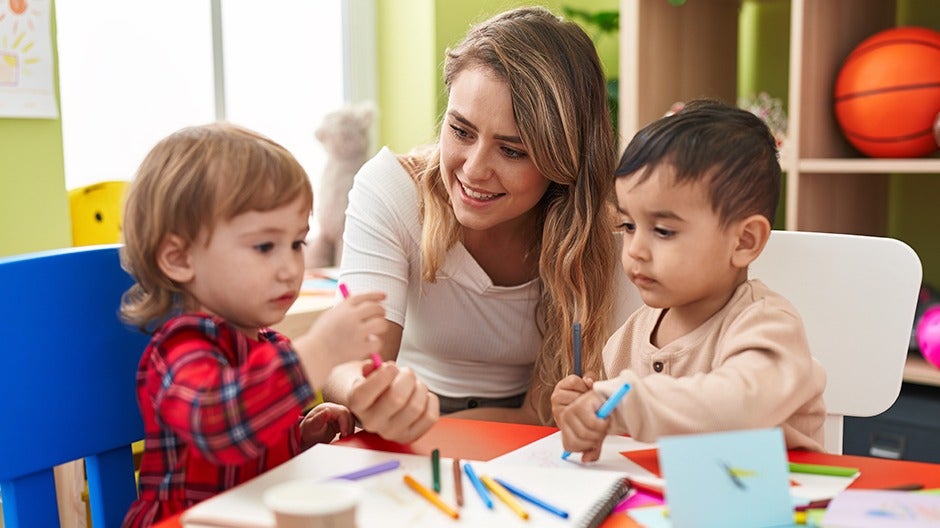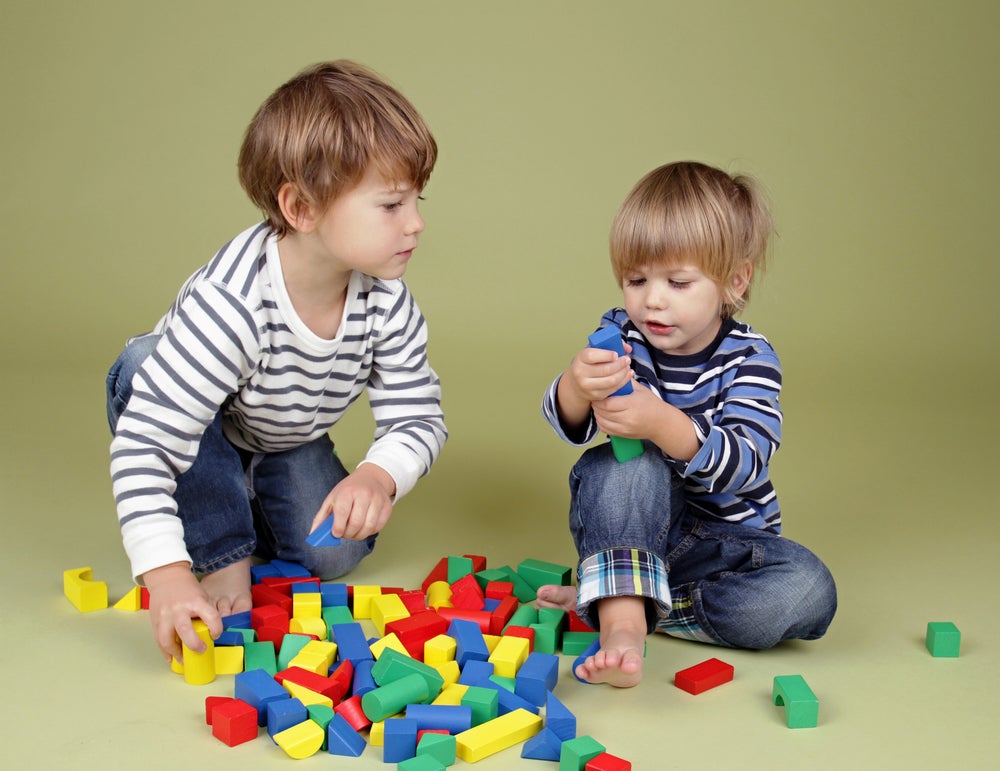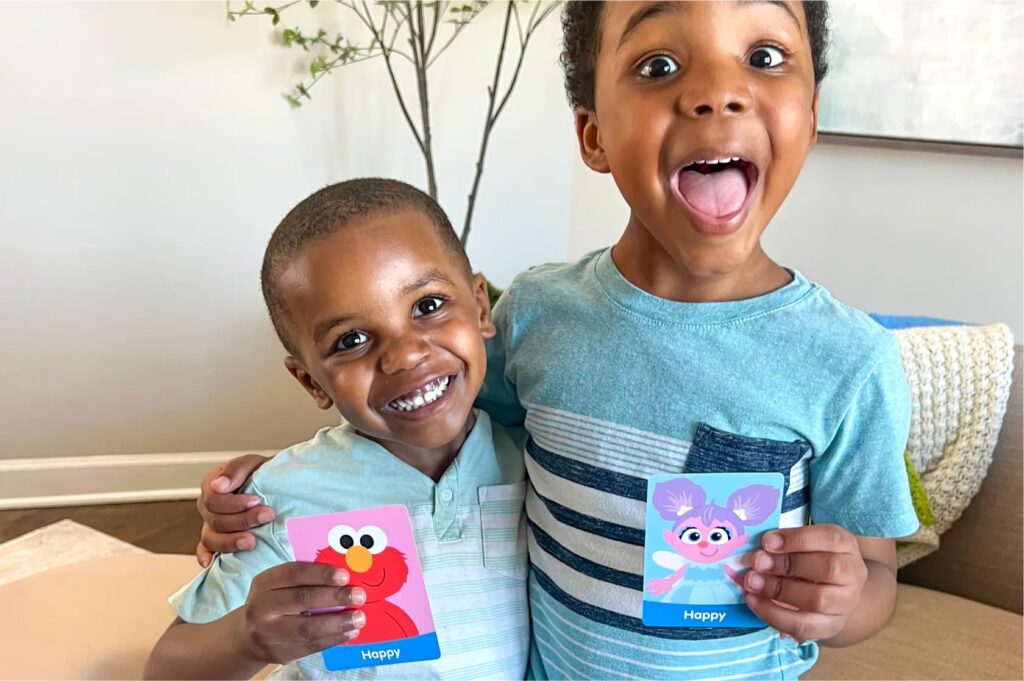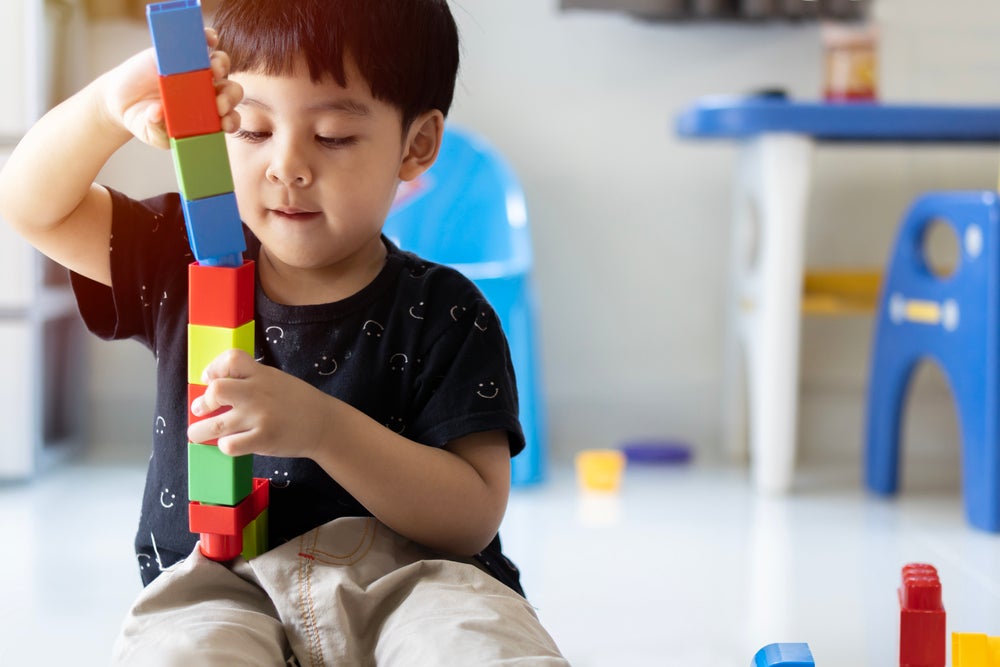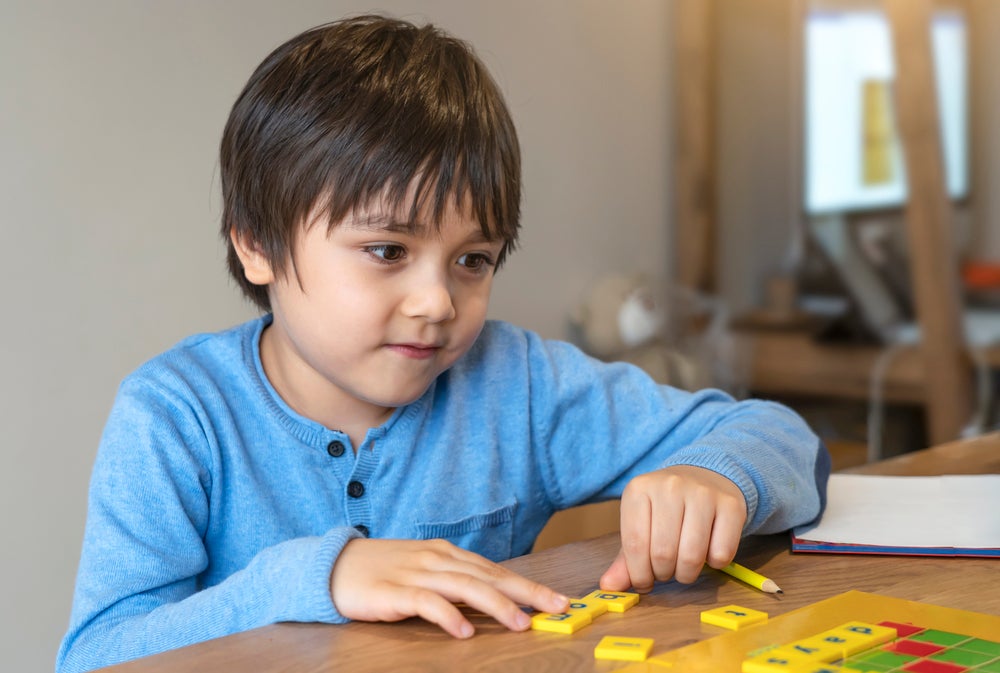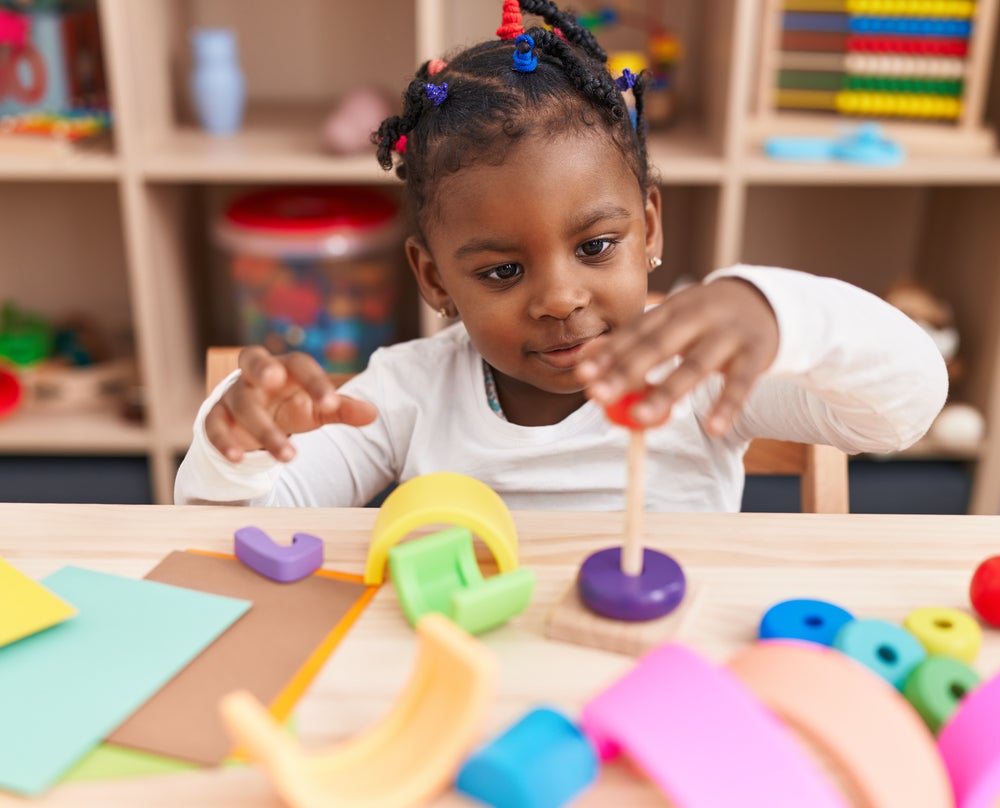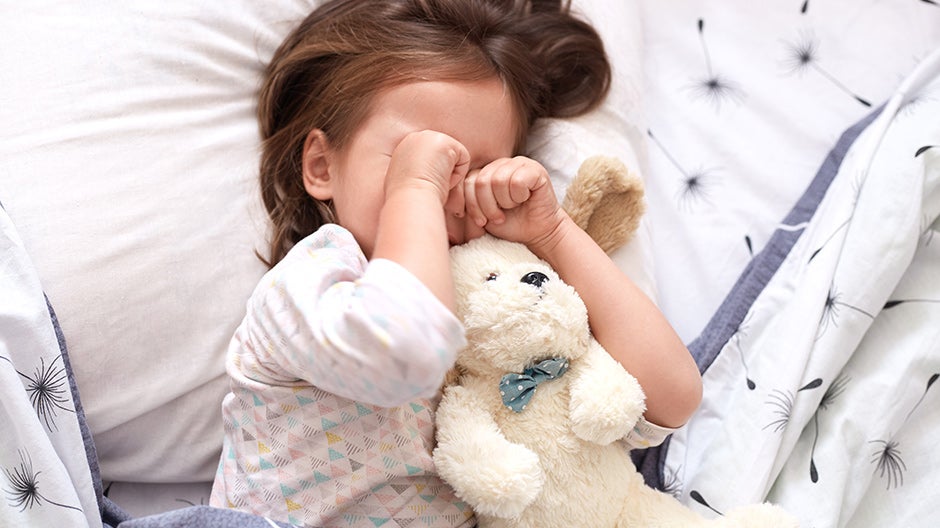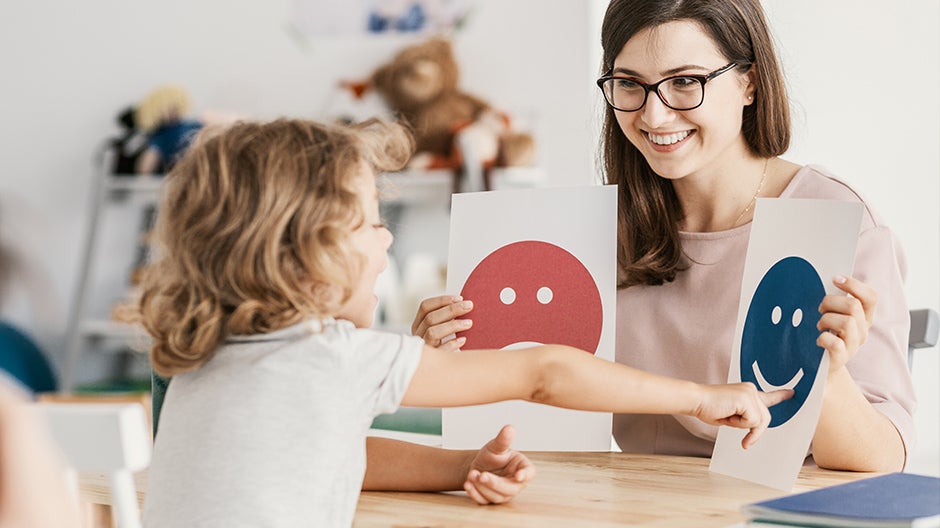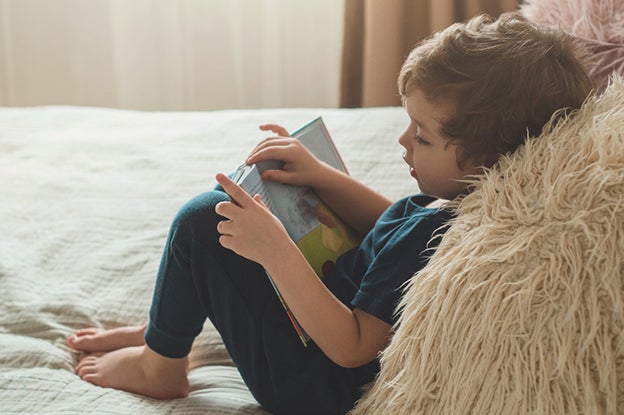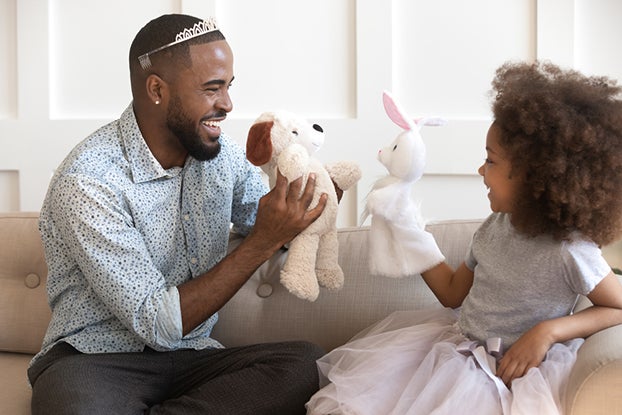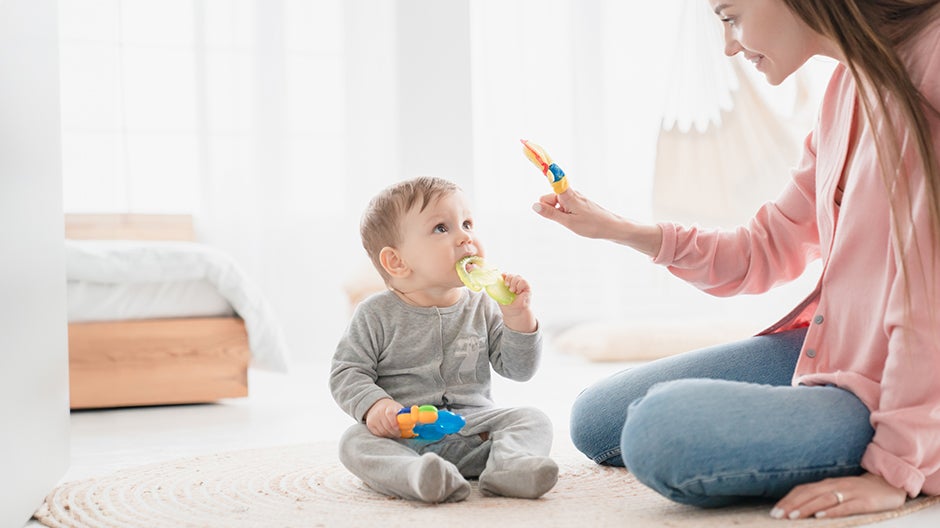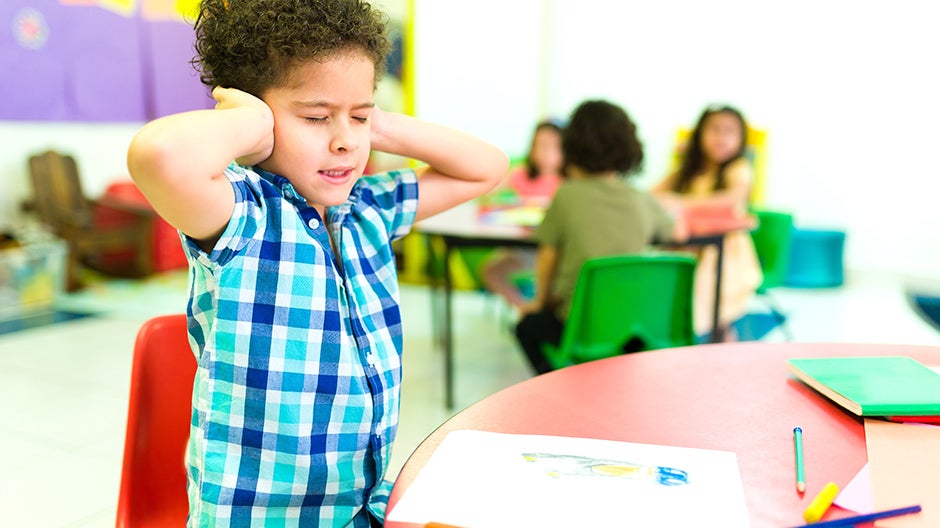How do you teach your preschooler social skills when two-, three-, and four-year-olds are naturally focused on themselves? Take your cues from early learning research and tap into the power of play through social skills activities for preschoolers!
Your preschooler may have a hard time sharing, cooperating, empathizing, and listening. That’s normal at this age! It’s also normal to be a bit frustrated and confused about the best way for them to learn these skills.
We’ve done the research so you don’t have to. Try these expert-backed tips and activities as you embark on the rewarding journey of preschool social development.
The Short Cut
- Learning how to communicate and interact with others respectfully is an important aspect of building Character, one of the 5 C’s at the heart of the Begin Approach to learning
- Key social skills build upon each other—learning to listen leads to learning to follow directions, which helps your child thrive at home and at school
- Social skills may not be intuitive to your child right away, but with some practice they can become second nature
- A social-emotional learning program like Learn with Sesame Street can help your child develop social skills and other essential aspects of Character
3 Tips for Teaching Social Skills to Kids
Preschool-aged kids are working hard on building social skills.
The idea of friends is becoming more important to them, but they still don’t totally understand how (or why) they need to take turns. Or share toys. Or listen to an opinion that’s different from their own.
Preschoolers may be able to interpret other people’s basic emotions, like anger or joy, but they typically have a harder time recognizing more complex emotions like jealousy.
They may also use their imaginations more than they used to. This is fantastic when they’re playing a game and challenging if they imagine things that scare them.
Given where they are developmentally, how can you support your child as they develop these critical skills? Try these three tips.
1. Normalize Mistakes
As your child builds social skills, they’re going to make mistakes. Let them know this is okay. Mistakes mean they’re taking risks and trying!
After they make a mistake, encourage them to try again (not necessarily right away if their emotions are charged, but sometime later).
Then see if you can have a conversation about what they can do differently the next time.
Make sure you point out when you make mistakes too (and when your child succeeds). Seeing that you don’t do things perfectly all the time will let your child know they’re not alone.
2. Model Communication Skills
Communication is a foundational part of healthy social skills. The more your child can express their feelings, ask questions, and engage in conversation, the more they will excel at interacting with others.
To help, coach them as they talk with people by asking them leading questions: “It looks like you’re sad about saying good-bye. Is that true?”
You can also gently encourage them to ask their own questions when you notice they’re confused: “Do you want to ask your sister why you can’t play with her blocks?”
Every time you’re in a conversation with your child, you’ve got the opportunity to model communication skills and guide them to work on theirs.
3. Teach Them to Really Listen
Sometimes the reason your child doesn’t respond in an expected way to a social cue is because they aren’t really listening.
See if you can notice this when you’re in conversation with them or when you watch them interact with others. When it happens, try breaking down what you’re saying into smaller pieces.
You can also reinforce what you heard if it seems like your child missed it. (“Did you hear what your brother asked? He wants to know if he can play with that truck now.”)
Of course, it’s important to model listening too. If your child feels like you care about what they’re saying, it will be easier for them to do the same for you.
Why Play-Based Social Skills Activities Work
Imagine sitting your child down at the table and proclaiming, “Today we’re going to focus on building social skills!” You’d probably be met with a groan or a blank stare—or the sound of your kid hightailing it out of there.
But suggesting a game or some other play-based activity is usually met with an emphatic “YES!”
Games and play decrease stress levels in kids and get them excited about whatever we’re asking them to do.
Your child will be so immersed in something fun, they won’t realize they’re getting some excellent social skill learning under their belt at the same time.
Preschool Dynamics: Less Academic, More Social
If your child is going to preschool, you probably know that their curriculum is less about academic learning and more about practicing social skills, group dynamics, and encouraging curiosity to create a foundation for an interest in learning.
Preschoolers often work on:
- Communication
- Collaboration
- Empathy
- Problem-solving
- Conflict resolution
And while they will definitely be working hard (many kids come home from preschool ready to sleep!), most of their learning is likely happening during play-based activities.
This kind of learning isn’t limited to school though. Home is also a fantastic place to focus on building social skills through play.
5 Social Skills Activities for Your Preschooler to Do at Home
1. Role-play
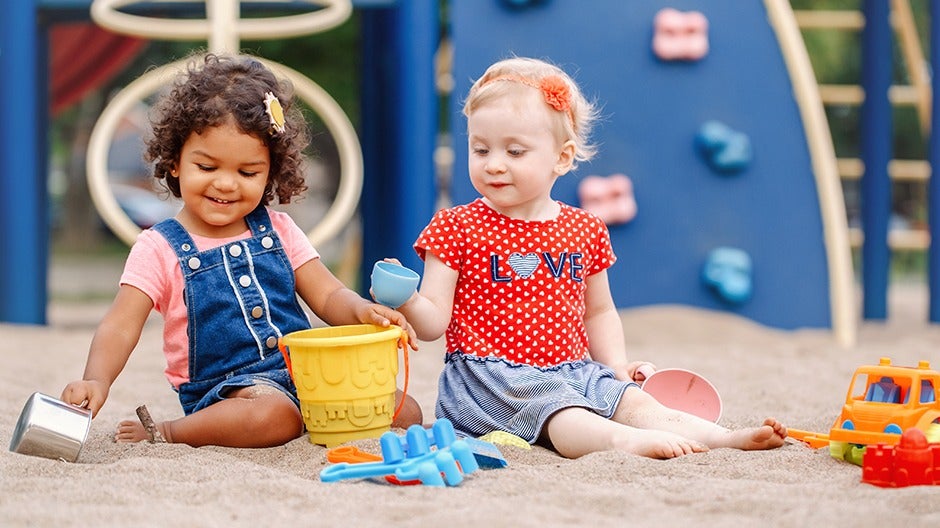
Engaging in pretend play is one of the best ways for your child to pick up new skills. They’ll organically practice communicating and interacting with different kinds of people in varied scenarios.
In a study about emotional regulation in preschoolers, researchers found that kids who engaged in dramatic role-play—like pretending to be a group of animals, playing chefs in a restaurant, or acting out a favorite picture book story—improved their ability to practice emotional control.
As they’re learning, don’t be surprised or dismayed if they role-play undesirable behavior. It’s part of the process! Just roll with it and role-play the consequences.
For example, if they’re playing chef and they’re going to make you leave their restaurant, you can role-play being sad and upset when you leave, or not wanting to go back to the restaurant again because the chef was mean to you.
It’s much gentler on everyone if they pretend to be mean while role-playing at home so they can see how it feels and what happens next than if they try it on the playground.
Focus on having fun, and let the learning come naturally!
2. Collaborative Arts & Crafts
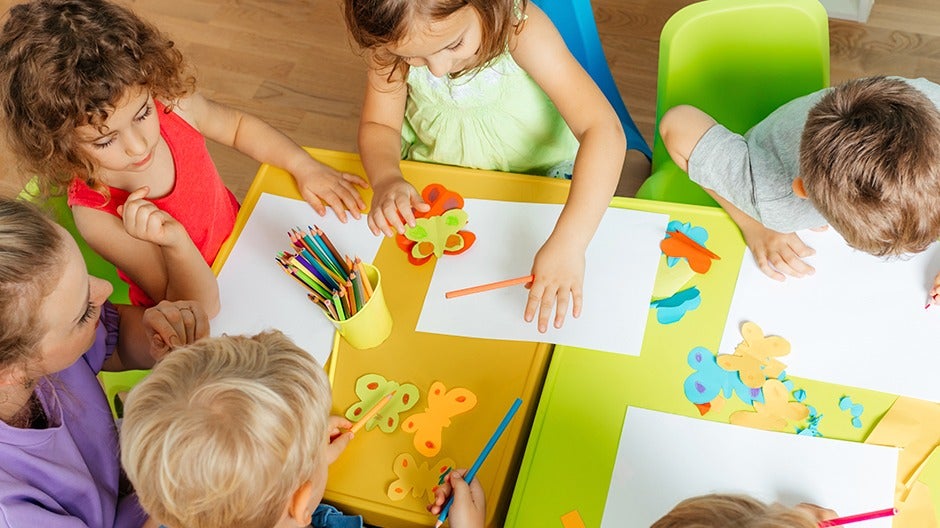
Engaging in an artistic activity gives your child an opportunity to express themselves in a tangible, physical way.
Try having them draw what they’re feeling or match colors to emotions. You can also add a collaborative element to an art project by making something together, like a big mural.
Brainstorming what you want it to be, deciding who will do what, and working side by side will build social skills.
Another fun activity is to make a game out of drawing, with each of you beginning a picture, then swapping papers and finishing each other’s.
Try guessing what you both were imagining when you first drew and then come up with stories about what the pictures became after you cooperated.
3. Emotion Charades
Take turns acting out emotions. You can write them on slips of paper or come up with them on the fly.
Charades gives your child the chance to practice naming and exploring different emotions, as well as to learn non-verbal cues connected to feelings, like frowning (sad), stomping feet (angry), jumping up and down (excited), and covering eyes (scared).
4. Community Collaborations
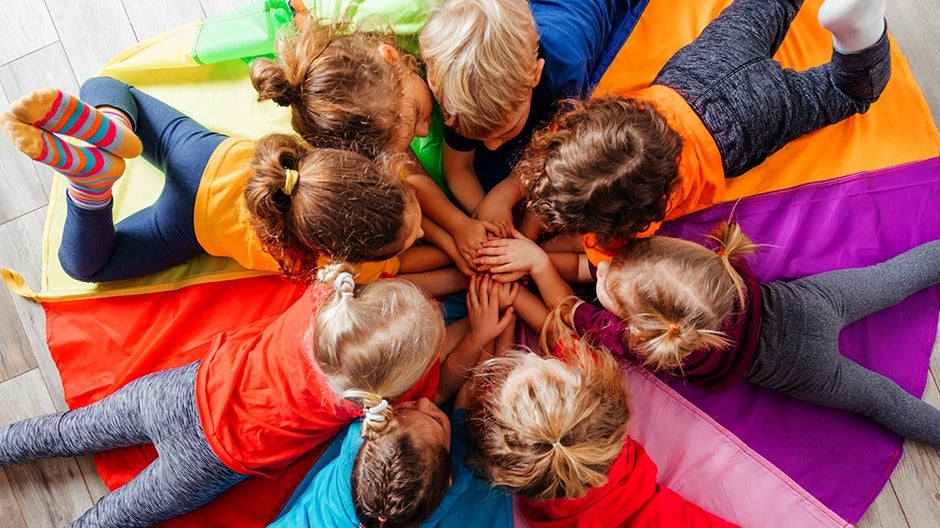
Taking activities out into the community allows your child to practice their social skills outside the family. It’s also a great chance for a group activity for preschool socialization.
For example, start a community garden (even if it’s an indoor or windowsill herb garden) with your neighbors. Each family could choose a different food to plant and rotate tending to the garden. And you can share the produce once it’s harvested!
Sharing, coordinating, and collaborating on a project that yields real rewards can help your child feel what it’s like to be a part of something bigger than themselves.
Other fun community projects include:
- Lemonade stands
- Bake sales
- Multifamily yard sales
- Block parties
5. Gratitude Activities
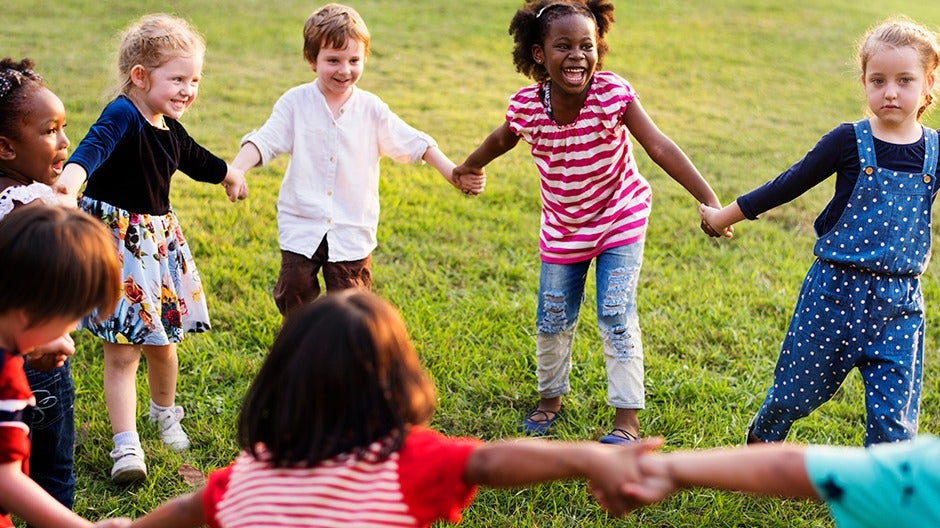
Practicing gratitude is ageless!
Everyone in your family can participate in it and reap rewards like reducing stress, feeling grounded, and feeling more connected to the people around you.
There are many ways to incorporate a gratitude ritual into your day. You can make a habit out of sharing one thing you’re grateful for when you sit down to dinner. Or give each of your family members a compliment before you go to bed.
You can also make your gratitude habits seasonal! Try making a gratitude pumpkin in the fall. In the spring, place gratitude signs in your garden or on your windows.
Helping your preschooler develop a gratitude habit is an important part of learning how to engage in meaningful relationships.
Other ways to invite gratitude into your home include:
- Creating a gratitude journal
- Filling a jar with notes of gratitude
- Drawing a gratitude mural
- Making a gratitude tree
Social Skills Set Up Your Child for Life
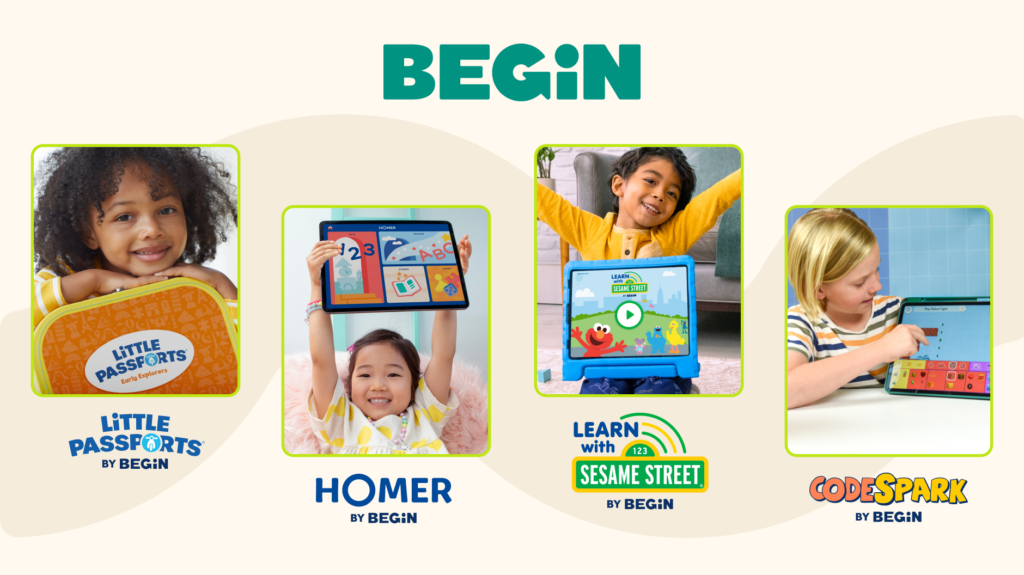
The more you provide opportunities for your child to practice their social skills, the more these skills will become part of how they interact with the world.
It’s not always easy to get there, but seeing your child start to use the social skills you’ve worked on can be one of the most gratifying parts of raising a preschooler.
At Begin, we believe so strongly in the power of social skills activities to improve kids’ lives that we’ve built them into many of our award-winning learning products.
Our Learn with Sesame Street social-emotional learning program includes activities focused around naming feelings, being a good friend, sharing, and more. Check it out today!
